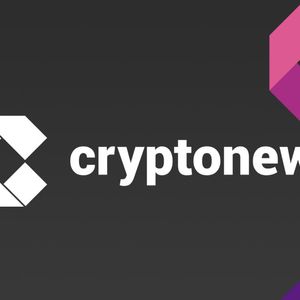South Korea’s Democratic Party forms crypto policy panel before election
3 min read
South Korea’s Democratic Party has established a Digital Asset Committee to double down on its cryptocurrency policy agenda and bolster industry growth ahead of the June 3 election. According to reports from local media, the new committee held its first meeting on May 13 at the National Assembly Members’ Hall in Seoul. What is the Digital Asset Committee? The committee, led by National Assembly Chairman Min Byeong-deok, will address the regulatory gaps in the South Korean crypto market. It also includes several prominent figures such as standing general election committee chairman Yoon Yeo-joon, Muksanism Committee chairman Maeng Seong-gyu, National Assembly member Kim Byeong-gi, and former Assembly chairman Kim Jeong-woo. Speaking at the opening meeting, Min pointed to ongoing friction between crypto exchanges and the banking sector under the current regulatory setup. He highlighted the “one exchange, one bank” rule, which allows each platform to partner with only a single bank, as a key legislation that needs to be addressed. The arrangement, he noted, introduces systemic vulnerabilities and stifles competition, particularly in cases where an exchange encounters issues with its exclusive banking partner. As such, Min called for more flexible regulatory frameworks to mitigate risk and enhance operational resilience within the industry. The committee has also placed stablecoins high on its agenda amid growing global attention to their potential to reshape financial systems. The issue has gained urgency in South Korea following renewed efforts by the U.S. to formalise regulation around dollar-backed stablecoins. Concerns have also been raised by the Bank of Korea, which warned that unchecked stablecoin growth could undermine the central bank’s ability to implement monetary policy and maintain financial stability. Min said discussions are ongoing about how South Korea should approach stablecoin oversight, particularly who should be in charge. At present, it’s unclear whether the responsibility should fall to the Bank of Korea or the Financial Services Commission (FSC), with both institutions staking a claim. While the central bank argues for oversight based on monetary stability, the FSC views it through the lens of financial supervision and market conduct. “There’s a point of contention,” he said, noting the policy divide. Beyond the question of jurisdiction, the committee will also explore whether stablecoin issuers should operate under a licensing regime or simply report their activities to authorities. That distinction could shape how tightly the sector is regulated and how quickly new entrants can come to market. Crypto becomes a key agenda Cryptocurrencies have become a central campaign issue in South Korea, with major parties unveiling digital asset pledges to win over a growing bloc of crypto-savvy voters. With roughly 16 million South Koreans, including politicians , actively engaged in crypto, accounting for over a third of the electorate, digital assets are now seen as a serious political currency. The Democratic Party, led by presidential candidate Lee Jae-myung, has leaned heavily into pro-crypto messaging . Lee recently pledged to push for the approval of spot crypto ETFs, reduce trading fees, and establish a unified oversight system to strengthen investor protections. To further signal its commitment, the Democratic Party brought in token securities expert Professor Kim Yong-jin to help shape its digital asset policy. One of its lawmakers also introduced a draft bill titled the Digital Asset Promotion Basic Act, aiming to build a more stable and transparent regulatory framework. Not to be outdone, the ruling People Power Party has laid out its own crypto roadmap. In April, it unveiled a seven-part strategy that includes legalising spot Bitcoin ETFs, allowing institutions to trade crypto, and aligning stablecoin rules with global standards. The ruling People Power Party also wants to dismantle the “one exchange, one bank” rule. Presidential candidate Kim Moon-soo of the People Power Party has taken a vocal stance on the need to protect retail investors, calling for the establishment of a dedicated crypto task force under his leadership. The post South Korea’s Democratic Party forms crypto policy panel before election appeared first on Invezz

Source: Invezz



